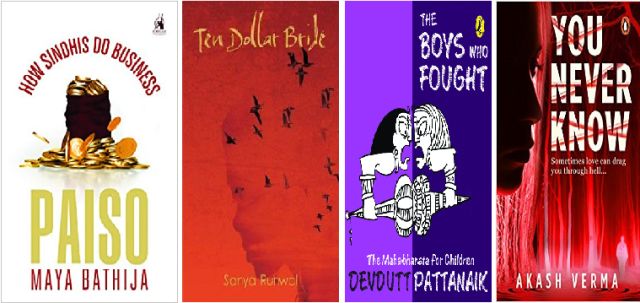
Journey into marriage is about ‘we’, away from it is about ‘me’: Writer Devdutt Pattanaik
By Saket Suman,
New Delhi : A marriage is not just about the bride and the groom, asserts mythologist Devdutt Pattanaik who has done considerable work on ancient Indian scriptures. In fact, according to him, it has always had a much larger connotation than what is normally perceived of it.
In his latest book “Devlok with Devdutt Pattanaik 3,” he presents two primary reasons for marriage being a big deal in India: firstly, “it became more important out of the fear that if people didn’t get married, they would become bhikkhus or sanyasis”, and secondly, “the parents fear that if their children didn’t get married “they would go astray, get ‘corrupted’, and would not become responsible.”
But is a married man or woman free from the desire to become a sanyasi or going “astray” and getting corrupted and becoming irresponsible?
“Marriage is a social institution, about family, about responsibility, and most importantly transmission of property, and lineage. Marriage forces you to think about others — the duty towards spouse, children and family estate. This is a burden. Sanyas is about thinking about yourself, only yourself. So is the life of hedonism, pleasure, one-night-stand, tinder.
“One can say, the journey into marriage is about ‘we’ and the journey away from it is about ‘me’. This me can be the flesh as in case of a hedonist and it can be the soul in case of the hermit. Householder stands in contrast to the hermit and the hedonist. If others matter, then the householder life becomes important. This does not mean marriage as much as responsibility for others, being dependable, rather than independent,” Pattanaik, who has authored over 30 books and 600 columns on mythology, told IANS in an interview.
In the book, he also considers marriage as a responsibility and refers to the Pandavas and Draupadi to highlight that “with marriage, wealth and power are exchanged.”
In this context, asked about the evolution of dowry to the shape that it has taken today, Pattanaik said that marriage has always been about exchange of wealth and power along.
“Dowry marriage is the result of a society that values women over men, and the men are seen as doing a favour by marrying a woman. In many communities, dowry is a way to show the value of a boy. The more dowry he gets, the more valuable he is. In a poor country like India, many parents see dowry as a way to earn money, increase their wealth, often to compensate for wealth lost via a daughter. No religion teaches anyone to disrespect anyone — however people often use religion as a tool to disrespect people.
“Just as Muslims justify hijab as part of Islamic tradition, and some Christians justify denying women rights over their body in matters of abortion as part of Christian tradition, some Hindus use dowry as part of Hindu tradition. These are just men who use religion to assert masculine power over women. Hinduism, unlike Christianity and Islam, is not a rule- based religion that prescribes how people should behave,” he said.
In the book, he further points out that “the males always seek out the females” and gives examples of the animal or bird kingdoms to establish that “there is rivalry among the males for the females”. He observes that the males suffer an anxiety about “not getting a female to mate with” and contends, in this context, that “every female is precious, whereas a male is not.”
When asked if he was suggesting that a disbalance in the sex-ratio (where there are more males to females) has been a rule of nature, Pattnaik differed and said that he was not suggesting anything.
“I am showing how the process of creating mating pairs in nature in animal and plant kingdoms is full of violence, competition and anxiety. There is always a lot of tension in matters of creating mating pairs in human society — which is why marriage is associated with a lot of violence, with parents controlling who their children marry, men forcing women to have sex with them, women being forced to bear children even if they do not want to. Hindu scriptures observe, without judgment, how we have not risen above our animal nature. How we are still anxious and dominating and territorial. It recommends ways to outgrow animal nature,” he said.
The book is based on Pattanaik’s “Devlok”, a television series on Epic channel where he shares his insights on matters related to mythology and responds to questions in detail.
(Saket Suman can be contacted at saket.s@ians.in)
—IANS

